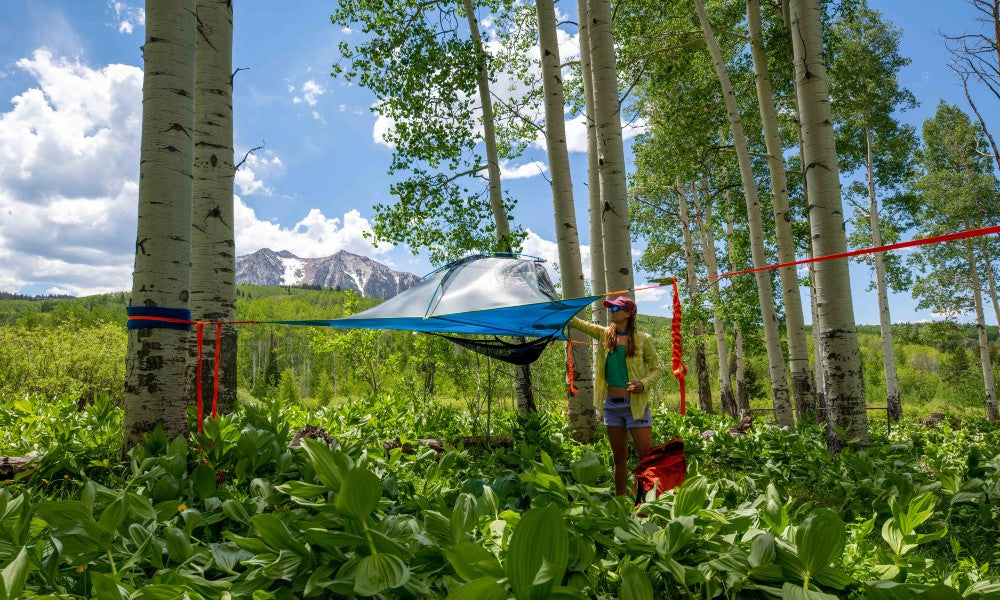In 1972 the United Nations held the world’s first conference on the environment in Stockholm. The slogan for that conference was ‘Only One Earth’. 50 years on, and even after the Stockholm Declaration which contained 26 principles which placed environmental issues at the forefront of international concerns, we’ve entered a climate emergency – a “code red for humanity” according to UN Secretary General.
50 years on we’re still fighting for #OnlyOneEarth and for transformative action on a global scale. We’re fighting to protect and restore our planet. And while our individual consumption habits do make a difference, what we really need is collective action on a global scale.
This means people AND organisations around the world making transformative changes to the way they live, shop, operate, so we create a sustainable future for everyone, everywhere.
This World Environment Day is about shining the spotlight on climate action, nature action and pollution action.
Climate Action
Take a look at climate action progress so far – emissions keep rising, plans are made but little progress has been made.
Right now, the world is heading for a rise in temperature of more than 3 degrees this century. The concentration of greenhouse gases in the atmosphere is causing this rise in global temperatures which comes with a host of impacts and catastrophic consequences.
One of these consequences are wildfires. More wildfires are ravaging the earth and they’re getting worse…
The changes in seasonal weather and extreme draughts are causing more wildfires which in turn destroy ecosystems, biodiversity, and people. It also emits additional CO2 affecting people’s health. As a collective, the world must aim to limit the temperature rise to 1.5 degrees, but that means cutting emissions significantly by 2030.
Nature Action
Despite numerous government pledges, biodiversity loss is accelerating in all regions of the world. Biodiversity is what makes up our eco-system - every piece of an ecosystem depends on the others - like a jigsaw puzzle. So, a change in the temperature of an ecosystem will have a knock-on effect on other things, like what plants and animals can grow and live there. The problem is, as the human population has grown, we have begun to encroach on, and overtake these delicately balanced ecosystems causing their rich biodiversity to suffer and an unnatural equilibrium in nature to occur. This in turn has limited their ability to deliver vital services to humanity.
It is our responsibility as humans to coexist harmoniously with other species in the ecosystems we share to ensure a healthy planet. We must work together on all levels from government to individuals.
Learn more about Nature Action and what is being done to help combat the threat to our natural world here.
Pollution Action
Like it or not, chemicals and waste are a by-product to all sectors of society and how we live – it is how we manage these pollutants which is essential for protecting our sensitive ecosystems and human and environmental health.
As the world’s population approaches nearly 8 billion our impact on the planet intensifies. By 2025, the world’s cities will produce 2.2 billion tonnes of waste every year, more than three times the amount produced in 2009.
Plastic is just one of these waste products which is choking our seas and threatening our ecosystems. The rapid growth in plastic production as well as the sudden increase in single-use plastic during the pandemic has resulted in plastic leakage on a scale we have never seen.
Plastic waste is just one part of the pollution management problem but as organisations and individuals, we can actively choose products which don’t use plastic in our everyday lives to help the pollution action fight. Find out more about Pollution Action and what the UN is doing to combat these issues here.
What are Tentsile doing to help the fight?
- Helping to restore ecosystems on land – for every tree tent, hammock and tent we sell, we plant 20 trees with our partners Eden Projects and WeForest.
- Banning single use plastic – as of 2022, we have banned use of any single use plastic in our factory, including our suppliers.
- Ensuring finances support environmental sustainability – we are a 1% for the Planet member, meaning that 1% of our revenue goes to supporting sustainability projects around the world.
- Enhancing circularity for consumption – we hate anything going to landfill; therefore, we encourage customers to send us their old tents and hammocks as part of our trade-in scheme. For every trade-in we give 20% back so a new product can be purchased.
The old products are then either repaired and resold as pre-loved products or sent to be upcycled into new products as part of Universities product design courses.
Watch our vlog with Tentsile Founder Alex Shirley-Smith and Chase Anderson from Utah State University as they discuss how our old products are used by students.
Or, look for pre-loved products here.
- Cutting emissions – we avoid air freighting products and ship our products using sea freight, which although is slower, it releases 63 times less emissions when transporting goods of the same weight over the same distance.
As we strive for our vision to tread more lightly on earth, we have even more plans for 2022 to help reduce our footprint and become a more sustainable business.
Don’t forget #OnlyOneEarth – we only have one, so let’s protect it.
If you’d like to know how you can help preserve ecosystems and biodiversity while your camping, or enjoying the nature in the great outdoors, checkout the 7 principles of Leave No Trace.



